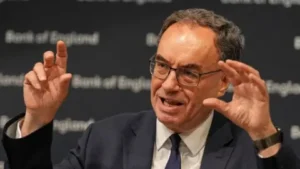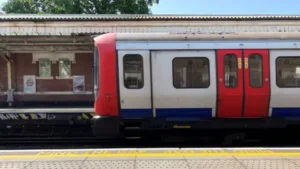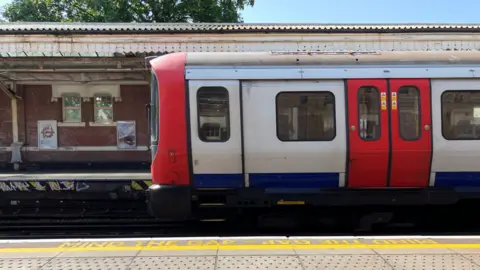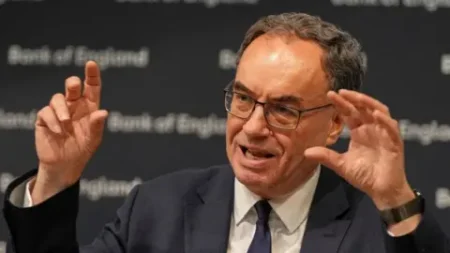### Tube Fare Evasion Prosecutions Hit Record High
The phenomenon of fare evasion on the London Underground has reached unprecedented levels, as indicated by recent statistics. According to data obtained by the BBC, the number of prosecutions for fare evasion has climbed to its highest point since 2019, highlighting an increased focus on this issue by Transport for London (TfL).
In the fiscal year 2024-25, TfL prosecuted an impressive 3,691 individuals for evading fares on the Tube. Furthermore, the organization issued 13,118 penalty fare notices (PFNs) and 850 written warnings to offenders. These figures represent a concerted effort by TfL to combat fare evasion and recover lost revenue, which it regards as a vital aspect of ensuring the integrity and funding of London’s transport services.
### Notable Trends in Enforcement
In stark contrast to the high number of prosecutions on the Tube, the London Overground has seen a record quantity of PFNs at 12,527. However, the prosecutions for fare evasion on the Overground have decreased to 3,044 – a drop of 33% from previous years, with 440 warnings issued during the same period. TfL reiterated that fare evasion is “not a victimless crime,” urging that every case of evasion deprives Londoners of essential investment in transportation services. TfL aims to reduce the current rate of fare evasion to 1.5% by the year 2030, indicating its commitment to stricter enforcement and improved revenue collection.
### The Recent Context and Public Awareness
The context for these revelations stems from a Freedom of Information request submitted by BBC London, which sought to illuminate the state of fare evasion in response to growing public interest, particularly following high-profile incidents involving prominent figures. For instance, a video released in May showcased shadow justice secretary Robert Jenrick confronting fare evaders, which garnered widespread attention and criticism, amplifying scrutiny of the issue.
The peak of fare-dodging prosecutions in the recent past was noted during the 2018-19 period, where 4,919 prosecutions were recorded. Nevertheless, numbers dramatically decreased in the subsequent years, particularly during the COVID-19 pandemic when the number of passengers utilizing public transport fell significantly. In fact, there were no PFNs issued on the London Overground throughout 2020-21, with merely 134 prosecutions noted in 2021-22. During that time, revenue enforcement efforts were redirected to manage compliance with government COVID-19 regulations.
### Rising Public Response and Investment in Enforcement
Despite the fluctuations in prosecutions, the number of warnings has been on a consistent upward trajectory. The periods of 2023-24 marked record levels for both the Underground and Overground, with 948 and 887 warnings issued, respectively. In fiscal terms, TfL allocated nearly £14.2 million to efforts targeted at curbing fare evasion on the Tube, alongside £7.7 million spent on bus network enforcement, resulting in £1.3 million in collected penalty charges.
Siwan Hayward, TfL’s director of security, policing, and enforcement, emphasized that while the majority of passengers do pay fares, fare evasion remains unacceptable. He noted ongoing initiatives to bolster the capabilities for deterring and detecting fare evaders, including expanding the team of investigators aimed at the most persistent offenders, all while reinforcing the presence of over 500 uniformed officers deployed to handle fare evasion and other antisocial behaviors effectively.
### Public Transport and Future Perspectives
An estimated 3.4% of passengers evaded fares across all transport services within London between April and December 2024, reflecting a minimal decline from the previously reported figure of 0.4%. As TfL moves towards enhancing enforcement measures while bolstering public transport services, the strategies and investments initiated may assist in addressing fare evasion concerns more comprehensively.
In conclusion, the major uptick in fare evasion prosecutions on the London Underground underscores the pressing need for rigorous enforcement policies and public compliance on a crucial public service. As stakeholders continue to adapt to changing patterns of behavior and operational challenges, it remains to be seen how ongoing efforts will shape public transport dynamics in London.











